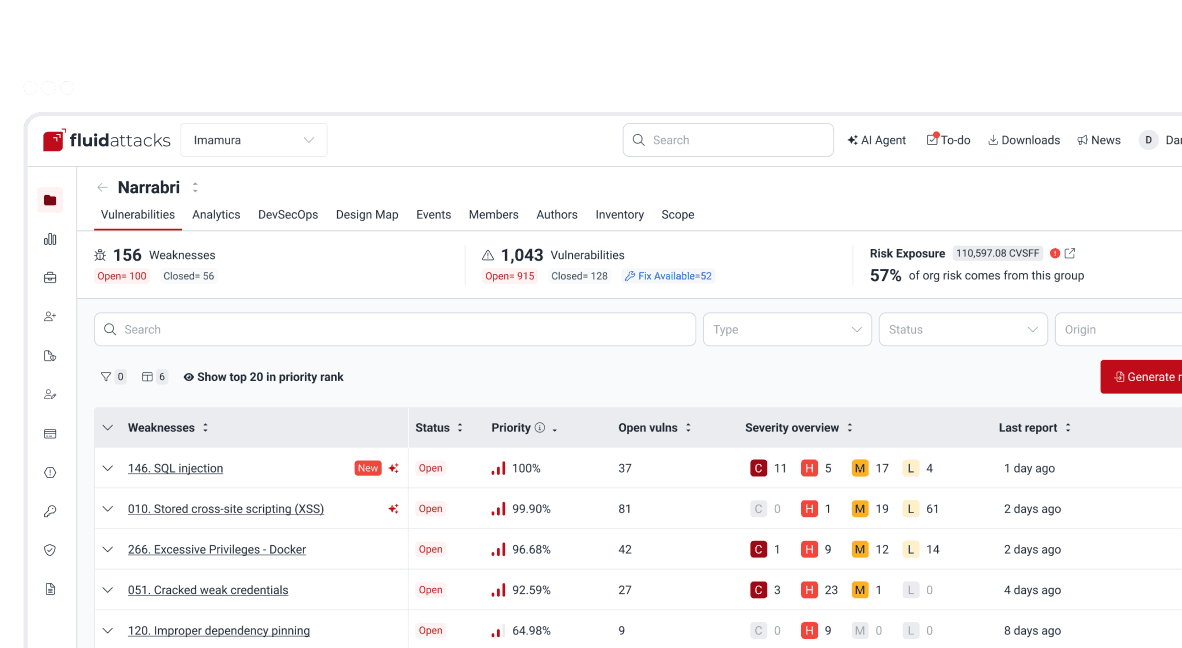Opinions
Always 100% ready for remote work: The product of a valuable effort over ten years ago


CTO and co-founder
Updated
Apr 7, 2020
3 min
Back in 2009, Fluid Attacks experienced one of the most significant cultural changes in its history: selling all its offices, furniture and belongings, and keeping only its laptops. At that time, we discovered the potential of the cloud. We migrated all our systems to it. We sold our technical room, its servers, UPS, backup tape systems, everything. We sold everything!
Everyone was authorized to work from home, keeping only a new and small office with a single workstation for administrative tasks, and a meeting room for some face-to-face meetings.
The leading providers at that time were Amazon for all the infrastructure, and Google for the entire collaboration suite. With these two elements —plus a VPN system customized by us in the Amazon infrastructure— we were able to operate fully dispersed in less than a month, after almost eight years working a few meters away.
The first six months of this exercise were the best of that time: productivity increased, distractions were minimized, and staff reported comfort and happiness. Costs were minimal, even considering the remote work allowance given to all talents for the Internet and other expenses. The company’s flexibility to grow was high, as the purchase of a laptop was sufficient. However, after those six months, the company was different.
Making a company grow by home office means that communication that was once informal now becomes formal. You stop seeing your colleagues' faces, and the sense of urgency is not remotely conveyed. The induction and training that used to come naturally now need to be formally defined. And the integrations that used to emerge organically must now be determined.
During all this time, we organized face-to-face meetings on Fridays from 5 PM to 6 PM, in which we watched films, gave technical talks, updated the company on new colleagues, carried out integration activities in different places, etc. However, these spaces could never achieve the closeness that sharing a physical space allows. Besides that, what used to be an agile and fast company implementing changes became a slow and pachydermic one.
So, we decided to return to a traditional face-to-face working mode and buy back an office, but keeping remote work as a contingency mechanism, either for individual exceptions or for general company eventualities. Holding this position available, indicated to us that from the technological point of view, the systems facilitating remote work should remain: laptop for all, dedicated internet channels or VPNs with the clients, and central systems (IaaS and PaaS) in the cloud. Besides, an automatic time control system (Time Doctor) that would facilitate the identification of moments of low productivity or low use, and a central active directory as a service (JumpCloud), that would allow the remote management of equipment that required support or backup.
In addition to all these systems, which are still in place today, the organization and technology have been evolving and providing us with more possibilities. In the past, we used Yubico tokens, which, assigned to each employee, reinforced the security of the VPNs, generated OTP keys with less exposure time, and also did not require a battery. However, provisioning a token is more complicated in non-physical environments. For this reason, today, our security scheme is reinforced by an identity and authentication management tool such as Okta. With it, all employees must enter a user before entering any system, enter a passphrase (we do not recommend passwords), and also confirm that they are authenticating through push notification by an out-of-band channel (OOB). This must be done from their cell phones, which, granted they have biometric devices, forces them to present facial or fingerprint authentication. Only then they will have access to a portal where they can enter all of the organization’s systems. From this portal, a record is kept of who accessed what, and the system-system keys are rotated without impacting the users.
It only remains to mention that our approach to product in the last decade makes us operate on a system that, consistent with our convictions, is totally in the cloud and in the most outsourced mode possible: Gitlab SaaS version. For security and transparency, all our developments are open to the public to be audited by anyone. This implies that they are available under an Open Source license, which enables us to have the most robust version: Ultimate. Through Gitlab, we do all the version management, issues management, configuration management, and change coordination in all our systems, including web pages and servers.
In this sense, the current COVID-19 pandemic has been for us nothing more than a sad moment for humanity, for many people who are losing their loved ones, and for others who are seeing their way of life affected. For us, from no perspective has it represented a technological or operational challenge. Everything has been in place for more than ten years to operate normally in the face of this difficult time.
The office is now empty, with only chairs and large screens arranged for the comfort and ergonomics of our absent talent. There is no information, documents, or objects of value there, except for some beautiful plants that harmonize and embellish the place. We have some disquiet, though, for we do not know how we will find them when we return.
Get started with Fluid Attacks' ASPM solution right now
Other posts



















